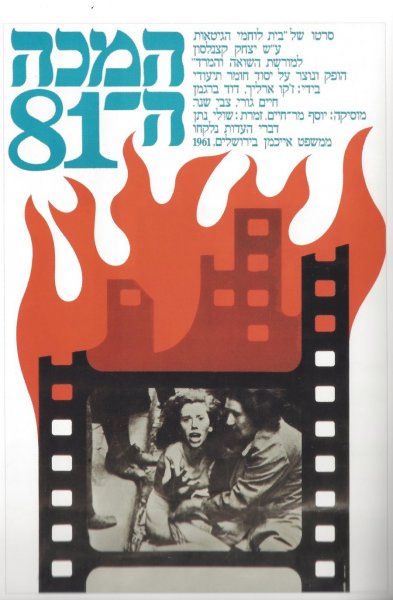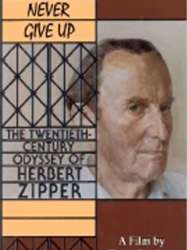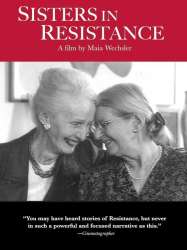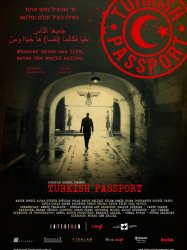The 81st Blow is a israelien film of genre Documentary
The 81st Blow (1974)

If you like this film, let us know!
- Infos
- Casting
- Technical infos
- Photos
- Videos
- Film quotes
- Characters
- Music
- Awards
Length 1h55
OriginIsrael
Genres Documentary
Themes Films about racism, Films about religion, Documentary films about racism, Documentary films about law, Documentary films about war, Documentary films about historical events, Documentaire sur une personnalité, Documentary films about religion, Political films, Films about Jews and Judaism, Documentary films about World War II
Rating75%










The 81st Blow (Hebrew: המכה ה-81 and also known as The Eighty-First Blow) is a 1974 Israeli documentary film directed by Haim Gouri. The film covers the oppression of Jews under the Nazis and features rare historical footage of concentration camps. It was nominated for an Academy Award for Documentary Feature. The title is derived from a comment by a witness at Adolf Eichmann's trial. According to his testimony, he was whipped 80 times by the Nazis, but was not believed by Israelis after the war; this final doubt of his own people was the "81st blow". The 81st Blow is the first film in the Israeli Holocaust Trilogy by Bergman, Ehrlich and Gouri. It was followed by The Last Sea (1980) and Flames in the Ashes (1985).
Comments
Leave comment :
Suggestions of similar film to The 81st Blow
There are 8971 with the same cinematographic genres, 12785 films with the same themes (including 60 films with the same 11 themes than The 81st Blow), to have finally 70 suggestions of similar films.If you liked The 81st Blow, you will probably like those similar films :
 , 1h39
, 1h39Origin Canada
Genres Documentary
Themes Films about racism, Films about religion, Documentary films about racism, Documentary films about law, Documentary films about war, Documentary films about historical events, Documentaire sur une personnalité, Documentary films about religion, Political films, Films about Jews and Judaism, Documentary films about World War II
Rating73%






Nicky's Family (2011)
, 1h36Directed by Matej Mináč
Genres Drama, Documentary
Themes Films about immigration, Films about racism, Films about religion, Documentary films about racism, Documentary films about law, Documentary films about war, Documentary films about historical events, Documentaire sur une personnalité, Documentary films about religion, Political films, Films about Jews and Judaism, Documentary films about World War II
Actors Klara Issova
Rating80%





"La famille de Nicky" est l'histoire extraordinaire de Nicholas Winton, surnommé le Schnindler britannique, qui avant le début de la seconde guerre mondiale, entre mars et août 1939, a sauvé 669 enfants tchèques et slovaques, pour la plupart juifs, du génocide nazi. Le film mêle fiction, documents d'archives inédits, et témoignages émouvants des protagonistes de cette histoire, parmi lesquels Nicholas Winton en personne et Joe Schlesinger, journaliste à la CBC et narrateur du film. La "famille" de Nicholas Winton compte aujourd'hui plus de 5 000 personnes dans le monde entier, qui lui doivent la vie.

The Last Days (1998)
, 1h27Directed by James Moll
Genres Drama, War, Documentary, Historical
Themes Films about racism, Films about religion, Documentary films about racism, Documentary films about law, Documentary films about war, Documentary films about historical events, Documentaire sur une personnalité, Documentary films about religion, Political films, Films about Jews and Judaism, Documentary films about World War II
Rating78%





Le documentaire relate l'histoire de cinq juifs hongrois durant l'holocauste, en s'intéressant notamment à la vie dans les camps de concentration et au désir de vivre des prisonniers.

Photographer (1998)
, 52minutesDirected by Dariusz Jabłoński
Genres War, Documentary, Historical
Themes Films about racism, Films about religion, Documentary films about racism, Documentary films about law, Documentary films about war, Documentary films about historical events, Documentaire sur une personnalité, Documentary films about religion, Political films, Films about Jews and Judaism, Documentary films about World War II
Actors Artur Brauner
Rating72%






Shadows of Memory (2000)
, 43minutesGenres Documentary
Themes Films about racism, Films about religion, Documentary films about racism, Documentary films about law, Documentary films about war, Documentary films about historical events, Documentaire sur une personnalité, Documentary films about religion, Political films, Films about Jews and Judaism, Documentary films about World War II
 , 1h31
, 1h31Directed by Errol Morris
Origin USA
Genres Drama, Documentary
Themes Prison films, Films about racism, Films about religion, Documentary films about racism, Documentary films about law, Documentary films about war, Documentary films about historical events, Documentaire sur une personnalité, Documentary films about religion, Political films, Films about capital punishment, Films about Jews and Judaism, Documentary films about World War II, Documentary films about law enforcement, Négationnisme
Actors Errol Morris
Rating74%





Using film made at American prisons, Leuchter talked about his upbringing where his father was a corrections officer. Through his family associations, young Leuchter claimed he was able to witness an execution performed in an electric chair. Leuchter's impression of the event was that the electric chairs used by American prisons were unsafe and often ineffective. The event led him to design modifications to the device that were adopted by many American states.
 , 40minutes
, 40minutesDirected by Terry Sanders
Origin USA
Genres Documentary
Themes Films about music and musicians, Films about racism, Films about religion, Documentary films about racism, Documentary films about law, Documentary films about war, Documentary films about historical events, Documentary films about music and musicians, Documentaire sur une personnalité, Documentary films about religion, Films about classical music and musicians, Musical films, Political films, Films about Jews and Judaism, Documentary films about World War II
Rating59%






Sisters in Resistance (2000)
, 1hOrigin USA
Genres Biography, Documentary
Themes Films about racism, Films about religion, Documentary films about racism, Documentary films about law, Documentary films about war, Documentary films about historical events, Documentaire sur une personnalité, Documentary films about religion, Political films, Films about Jews and Judaism, Documentary films about World War II
Actors Kate Mulgrew
Ce film est l'histoire de quatre femmes exceptionnelles, résistantes, prisonnières, idéalistes qui à la fin de leurs adolescences risquèrent leurs vies pour combattre l'occupant nazi. Ni juives, ni communistes, elles rejoignirent la résistance alors qu'elles auraient pu tranquillement vivre en sécurité. Dans les deux ans qui suivirent, elles furent arrêtées par la Gestapo et déportées à Buchenwald. Aujourd'hui elles sont devenues des leaders sociaux ou intellectuels.

Turkish Passport (2011)
, 1h31Genres Drama, Documentary, Historical
Themes Films about racism, Films about religion, Documentary films about racism, Documentary films about law, Documentary films about war, Documentary films about historical events, Documentaire sur une personnalité, Documentary films about politics, Documentary films about religion, Political films, Films about Jews and Judaism, Documentary films about World War II
Rating79%





Turkish Passport tells the story of diplomats posted to Turkish embassies and consulates in several European countries, who saved numerous Jews during the Second World War. Whether they pulled them out of Nazi concentration camps or took them off the trains that were taking them to the camps, the diplomats, in the end, ensured that the Jews who were Turkish citizens could return to Turkey and thus be saved. Based on the testimonies of witnesses who traveled to Istanbul to find safety, Turkish Passport also uses written historical documents and archive footage to tell this story of rescue and bring to light the events of the time. The diplomats saved not only the lives of Turkish Jews, but also rescued foreign Jews condemned to a certain death by giving them Turkish passports. In this dark period of history, their actions lit the candle of hope and allowed these people to travel to Turkey, where they found light. Through interviews conducted with surviving Jews who had boarded the trains traveling from France to Turkey, and talks with the diplomats and their families who saved their lives, the film demonstrates that "as long as good people are ready to act, evil cannot overcome".

Love Inventory (2000)
, 1h30Genres Documentary
Themes Films about families, Films about racism, Films about religion, Documentary films about racism, Documentary films about law, Documentary films about war, Documentary films about historical events, Documentaire sur une personnalité, Documentary films about religion, Political films, Films about Jews and Judaism, Documentary films about World War II
Rating69%





After the death of their parents, Filmmaker David Fisher feels that his family has grown apart and that his siblings are focused on their careers and relationships with their spouses and children. Fisher believes that a search for their sister, who was allegedly taken from their parents at birth, will help them bond.
 Connection
Connection